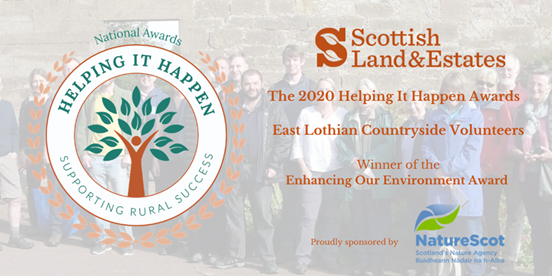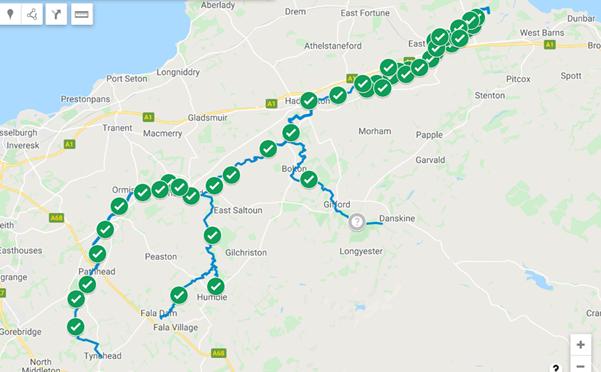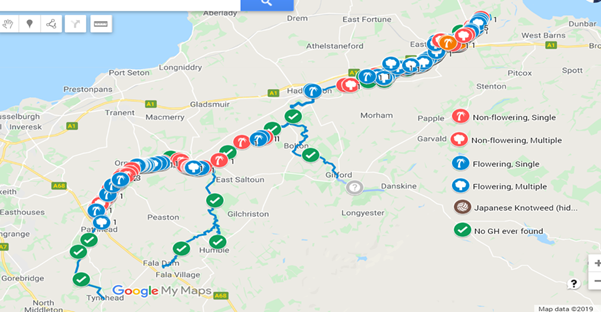Envu Support Award Winning Hogweed Eradication Project in the UK
Non-native weeds are an ongoing concern for the UK with 36 species currently documented by the government as ‘invasive alien plants’. Among these, giant hogweed is particularly tricky to control.

The Giant Hogweed Eradication Programme, run by the East Lothian Countryside Volunteers (ELCV) has been running for the past two years and aims to eliminate the weed along the banks of the River Tyne in Scotland. October 2020 saw the programme declared winners of the Scottish Helping it Happen Awards, receiving recognition in the Enhancing our Environment Category run by Scottish Land and Estates.
“This is a truly unique project, funded by landowners and run by volunteers” – Scottish Land & Estates
James Wyllie, voluntary project co-ordinator, explains they have seen huge success over the past two years, with 48 miles of the river and its tributaries being officially declared as giant hogweed free at the end of this season.
“The programme is run by volunteer ‘spotters’ who use our online mapping tool (developed by one of our volunteers) to plot sightings of the weed. They work in conjunction with the landowners and farmers to control the plants” says James.
“Our maxim is that ‘no plant should be allowed to flower’, and as these plants can produce up to 10,000 seeds this is vital.”
2019 Hogweed sightings:
“Therefore, when a plant is ‘spotted’ and mapped, the landowners can pinpoint the offending weed and control it, either with the use of Roundup or a spade.”
2020 Hogweed sightings:

“Ideally we want to catch the plants and control them ahead of stem extension to ensure they are controlled effectively and aren’t able to flower and spread seeds. However, if a plant is missed and allowed to flower, it must be cut off below the ground, the head removed, bagged, and disposed of safely,” he says.
“Envu have been big supporters of this programme, having provided Roundup to our licenced landowners for the control of the weed.”
Envu technical manager Colin Mumford said both the non-native giant hogweed and Japanese knotweed can have a severe knock-on effect to the entire food chain and ecosystem by rapidly reproducing and taking over land to the detriment of native flora and fauna.
“Envu is really pleased to be able to support this successful project, which has been driven by volunteers and landowners who are certainly worthy of this award. We’re keen to continue to support where we can, so these weeds that are damaging our environment can be tackled and kept under control,” he said.

